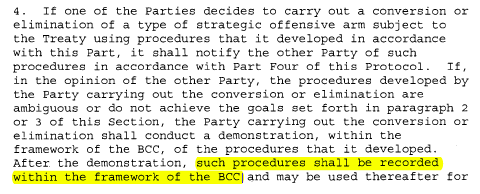February 2021 is much closer than it may appear. And with it the prospect of the New START expiration. It probably won't go down in acrimony like the INF treaty is about to do, but that wouldn't matter much in the end if the treaty is left to expire. Many good words have been said about how extending New START is the first priority in arms control and I agree with very much everything that has been said on the matter. However, one element seems to be missing from the discussion.
Advocates of New START extension in the United States often (in fact, almost universally) describe the issue as a matter of a simple move that the Trump administration is unwilling to take. Indeed, the treaty can be extended by an agreement between the executives that would not require ratification. But in practice the decision to extend may not be that simple and the reason it is not taken cannot be attributed only to John Bolton's known dislike of arms control.
Russia has made it quite clear that it wants to discuss New START extension, but it also made it clear that there is a condition attached to that. In brief, it wants the United States to discuss its concerns about conversion of New START accountable launchers. And this is where it gets complicated.
A careful reading of the treaty text (as my colleagues pointed out to me) shows that the conversion procedures implemented by the United States are in perfect compliance with the letter of the agreement - nowhere in the treaty it is said that the conversion has to be irreversible. So, Russia may not have a good legal argument here. However, as I wrote a year ago, that is not quite in line with the spirit of the treaty, since the idea of conversion is that it should allow to entirely exclude a launcher from the New START count. If the conversion procedure is reversible, it would be more accurate to classify that launcher as non-deployed. But that's not what the treaty says - it allows the conversion to be done by any "other procedures that are developed by the Party carrying out the conversion" and doesn't really provide a way for the other party to approve these procedures.
Russia argues that such mechanism exists as the treaty requires the conversion procedure to be "recorded" in the framework of the Bilateral Consultative Commission (see the opening paragraph in Section III of this letter), assuming that this cannot be done without other party accepting the procedure. Here is Part III/Section 1/Paragraph 4 of the Protocol:
I wouldn't say that Russia's argument is particularly strong, but it has a point. Imagine if Russia would come up with a conversion procedure that would consist of simply putting padlocks on its SLBM tubes. It would be perfectly legal - see "other procedures" above - but my guess is that the United States would make a big fuss about it.
Russia, in fact, showed that it could be fairly flexible about this - in its December 2018 letter it indicated that it might accept "the 'cabinet-level written political commitments' proposed by the United States." But the word is that the offer of such political commitments is no longer on the table.
Importantly, the readiness to accept the "political commitments" seems to indicate that Russia mostly wants its concerns to be taken seriously. If the United States admits that this is the matter that it is prepared to discuss, Russia would probably be ready to yield some ground. But the United States should make that step first.
And this is exactly what is missing from the current New START extension discussion. Even the New START advocates are reluctant to take Russia's concerns seriously. People often repeat that "Russia has said it is ready [to extend], no preconditions," but that's simply not true. And by (largely) avoiding the issue or (more often) by outright dismissing Russia's concerns the arms control community does the New START a great disservice.


Comments
Pavel, please refresh my memory. When would Russia or the United State have to notify its intentions to leave New START set to expire in February 2021? Is not that date really the decision point?
Frank Shuler
USA
The treaty automatically expires if they don't agree to extend it. There is no fixed date other than 5 Feb 2021.